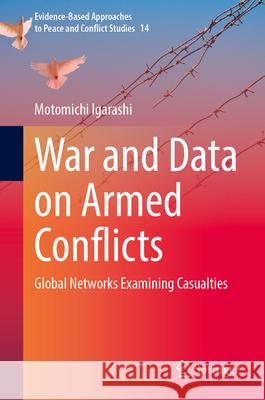War and Data on Armed Conflicts » książka
War and Data on Armed Conflicts
ISBN-13: 9789819764174 / Angielski / Twarda / 2024 / 142 str.
This book is the first to provide a comprehensive examination of the entities responsible for the production of data on armed conflicts (DAC), the processes by which it is generated, and the international norms that govern it. While numerous studies have focused on the statistical aspects of armed conflicts, this book distinguishes itself through its historical analysis of the relationship between actors, data generation methods, and international norms.The book begins with an examination of the nature of data in international politics. The vast scale of the subjects being analyzed presents significant challenges to accurately measuring international political data, with war being particularly difficult to assess. This raises the question of how DAC has been structured and generated. The book highlights the existence of specific international norms as a basis for DAC. It explores the history of international norms for the protection of war dead in collecting casualty information, as well as norms for civilian protection. The book posits that DAC has been generated not only by sovereign states but also by global networks comprising international organizations and NGOs. It thus analyzes the historical development of such global networks. In the latter part of the book, the methods by which global networks generate DAC are analyzed. First, it clarifies when and how statistical analysis has been used in generating DAC. Second, it elucidates when and how forensic analysis, primarily of corpses, has been employed. Thirdly, the book reveals when and how chemical weapons analysis has been utilized.This book offers a valuable investigation into the generative structure of DAC and mechanisms for ensuring compliance with international humanitarian law. It will appeal to a broad audience of policymakers, human rights activists, humanitarian practitioners, and academics.











